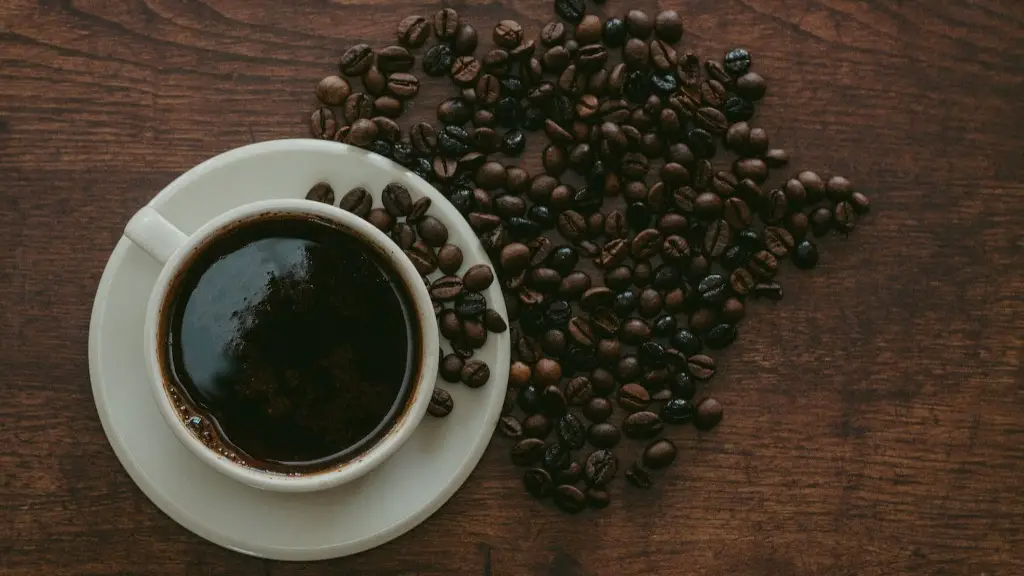Different Reasons Why Coffee Could Affect Your Bowel Movements
Coffee is one of the world’s most popular beverages, but some who drink it experience a strange side effect – every time they drink coffee, their bowel movements become more frequent. The phenomenon, known as ‘coffee pooping’, is experienced by a significant portion of coffee drinkers, but little is known about why it happens, or why some people experience it and others do not. In this article, we’ll explore some of the possible reasons for ‘coffee pooping’ and look at what we can do about it.
Coffee Could Stimulate the Bowels
The most obvious explanation for why coffee could affect your bowel movements is that it is a stimulant that triggers the bowels. Caffeine and other compounds found in coffee can cause increased muscle contractions in the digestive tract, resulting in the urge to go to the bathroom. This phenomenon is known as peristalsis and is the same reason why drinking sparkling water and other carbonated beverages can make you need to go to the bathroom.
Caffeine Could Lead to Dehydration
Another potential explanation is that drinking coffee could lead to dehydration, resulting in harder, dryer stools. Coffee is a diuretic, meaning that it increases the amount of urine your body produces and can lead to dehydration. Dehydration makes your stools harder and drier, which can make them more difficult to pass and can lead to more frequent trips to the bathroom.
Coffee Could Affect the Gut Microbiome
Another possible explanation is that coffee could be affecting the composition of your gut microbiome, the unique collection of bacteria and other microorganisms that live in your digestive tract. Recent studies have suggested that coffee can affect the composition of the gut microbiome, which could in turn affect digestion, leading to more frequent or unpredictable bowel movements.
Other Considerations
In addition to these physiological explanations, there could also be psychological or environmental factors at play. For example, a person’s mental state or stress levels could influence how they respond to the stimulant effects of coffee, while environmental factors such as a lack of air conditioning or too much exercise could also influence the body’s response to the drink. It is important to note that everyone’s body is different, so these factors could affect different people in different ways.
What Can You Do About It?
If you find that drinking coffee leads to more frequent bowel movements, there are some steps you can take to prevent or reduce it. First, try drinking less coffee, or swapping out some of your regular cups for decaffeinated versions. You can also try to take better care of your gut by eating a balanced diet, getting regular exercise, and making sure you’re getting enough fiber. Finally, if you’re feeling particularly stressed or anxious, it can help to reduce your caffeine intake, as these feelings can exacerbate the effects of coffee on your bowels.
What Role Does Coffee Play in Your Diet?
One of the most important things to consider when it comes to coffee and your bowel movements is the role that coffee plays in your diet. If you are drinking large amounts of coffee every day, then it is likely having more of an impact on your bowels than if you are drinking a cup or two every couple of days. To try to get the most out of your coffee without causing any adverse effects, try to limit your caffeine intake and focus on drinking decaffeinated versions of the drink.
Conclusion
In conclusion, ‘coffee pooping’ is a common problem that can be caused by caffeine or other aspects of the drink. If you find that drinking coffee causes more frequent or unpredictable bowel movements, there are steps you can take to reduce the effect, such as drinking less coffee, or choosing decaffeinated versions, eating a balanced diet and getting regular exercise, or reducing your caffeine intake if you are feeling particularly stressed or anxious. It is important to note that everyone’s body is different, so the effect that coffee has on your bowels may vary from person to person.
Tips to Maximize the Benefits of Coffee
There are a few things you can do to maximize the benefits of coffee without experiencing any adverse effects. The first is to make sure you are drinking coffee in moderation and not consuming too much caffeine in a day. A cup or two a day is the recommended amount of coffee for most adults. Second, opt for decaffeinated versions when you can. Third, be aware of how your body reacts to the compounds in your coffee, and if you are feeling any negative effects, try to limit your intake or switch to a different drink.
How to Make a Delicious Cup of Coffee
To ensure you get the maximum benefit and enjoy a delicious cup of coffee, it is important to prepare your coffee correctly. Start by measuring out correct amounts of coffee and water for your desired strength. Next, pour your water into the pot and bring to the boil on a low heat. Once boiling, remove from heat, add the grounds and steep for 4-6 minutes. Finally, filter the grounds through a fine mesh strainer and pour into a mug. Enjoy your delicious cup of coffee!
How to Control Caffeine Intake
If you want to limit your caffeine intake but still want to enjoy a cup or two of coffee, there are a few things you can do. The first is to switch to decaffeinated or lightly caffeinated coffee. Decaffeinated coffee has most the caffeine removed through a chemical process, while lightly caffeinated coffee has the caffeine content reduced to a low level. It is important to note that decaffeinated coffee still contains some caffeine and may cause adverse effects if drunk in excess. Another option is to choose different types of drinks with no caffeine when available.


